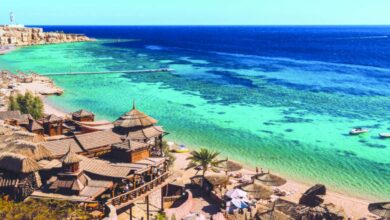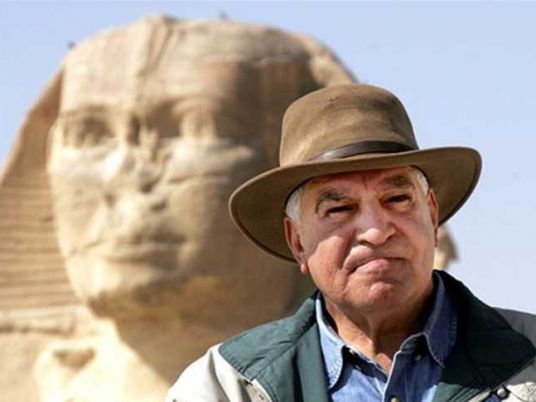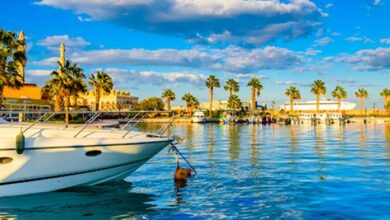Egypt expects to earn about US$9 billion from tourism in 2011, down by about a third on a year earlier after many visitors were deterred by an uprising that toppled Hosni Mubarak in February and unrest that followed, a senior official said on Tuesday.
Tourism is Egypt's top foreign currency earner, accounting for over a tenth of gross domestic product. Analysts say bookings for its beach resorts appear to have recovered faster than visits to areas along the Nile where most pharaonic ruins are found.
"We ended up the year 2010 with revenue of $12.5 billion. This year so far we have had fluctuations in the number of visitors … We started the year with a drop of 80 percent, then it got better through the year," Hisham Zaazou, senior assistant to the tourism minister, told Reuters.
"We expect around 30 to 35 percent less revenue than last year, which means it is going to be around $3.5 billion to $4 billion less, so we are speaking about a figure around $9 billion," he added.
Tourism Minister Mounir Fakhry Abdel Nour, speaking at a news conference on Tuesday, said tourism had been threatened by some candidates in Egypt's parliamentary election who had made "irresponsible" statements, and he vowed to make sure the industry was not harmed.
Many Egyptians working in tourism have warned against what they said were threats by Islamic radicals to undermine the industry.
"We will continue to support the tourism sector, which is a main pillar of the Egyptian economy, and we will work hard to support it… against anyone or anything that would destroy it," Abdel Nour said.
Islamists look set to have a strong showing in parliament, with the once-banned Muslim Brotherhood winning 37 percent of the vote in a first phase of balloting and the much more puritanical Salafis securing a surprise 24 percent.
There have been suggestions that an Islamist government in Egypt might restrict alcohol sales, mixed bathing and the wearing of revealing swimwear in the country's popular resorts, like Sharm el-Sheikh on the southern tip of the Sinai Peninsula. The Muslim Brotherhood has said these were not its agenda.
One prominent Salafi spokesman has suggested covering up ancient Egyptian statues, such as the Sphinx that guards the pyramids, saying they may be idolatrous.
He was later disavowed by members of the Salafist al-Nour party.
"Tourism creates jobs in the investment stage and the construction stage and jobs in the administration and service stage," Abdel Nour said.
A main challenge was "the irresponsible rhetoric by one faction or another that threatens the tourism sector," he said. "I assure people that this rhetoric does not express reality… and is incapable of being implemented."




